To support the many aspects of mood regulation and neurotransmitter production and function, it’s important to eat a nutritionally dense and diverse diet. In part 1 of this series, we looked at some key definitions of brain function, including the mood-regulating neurotransmitters. In that article, you can also find the most important nutrients for neurotransmitter production and function and how these nutrients can boost your mood.
In part 2 of this series, you’ll find some of the best foods to boost your mood, along with suggestions on how to eat them. Most of these foods contain multiple nutrients that support a happier mood.
Turmeric
Turmeric contains the bioactive ingredient, curcumin, a powerful, neuroprotective antioxidant. Curcumin can act as a modulator for different levels of neurotransmitters in the brain.[1] Studies on curcumin show that it can help manage symptoms of depression.[2]
It’s best to eat turmeric with fat, like a high-quality coconut oil or ghee, as fat helps to increase the absorption of curcumin. A compound, piperine, found in black pepper, also helps your body make use of turmeric’s bioactive, anti-inflammatory compounds.
EAT THIS: Try this recipe for turmeric roasted cauliflower.
Green tea
Green tea is also a good source of polyphenol flavonoids, especially EGCG. EGCG can cross the blood-brain barrier and provide improved cognitive function.[3] It is also associated with improvements in mood.[4] Its high level of antioxidant activity may help alleviate symptoms of stress and mood disorders.
Green tea also contains small amounts of L-theanine, a non-dietary amino acid that promotes a state of relaxation. This may partly contribute to green tea’s ability to give you a sense of calmness and reduce your stress.[5]
EAT (or drink, in this case) THIS: I love Numi’s Jasmine Green Tea. I have about 2 cups per day.
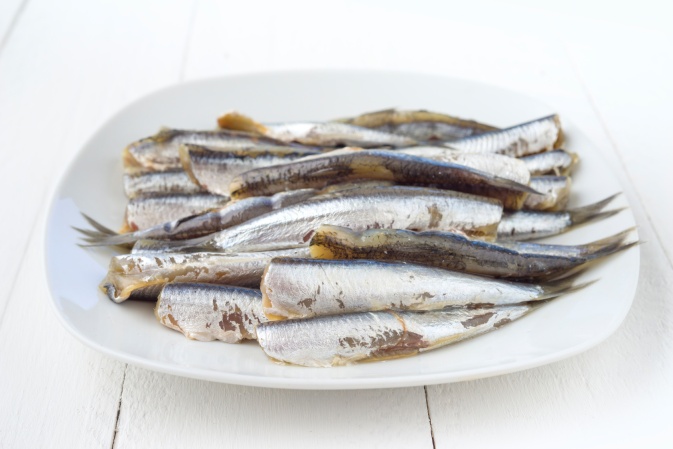
Sardines
You may have seen the recent post on “Why You Should Eat More Sardines.” There’s a reason these oily, tiny fish are a darling of the nutrition world. Sardines cover a broad range of mood-boosting nutrients. They are an excellent source of vitamin B12, omega-3 fatty acids, protein, and selenium. They are also low on the food chain, so are less likely to contain toxic levels of mercury. Mercury toxicity is directed correlated with depression.[6, 7] Sardines are also one of the few dietary sources of vitamin D.
EAT THIS: My favorite sardines are Wild Planet sardines in extra virgin olive oil. Wild Planet sustainably sources their seafood and uses BPA-free cans. Try this recipe for sardine salad. It also contains mood-boosting curcumin, from turmeric!
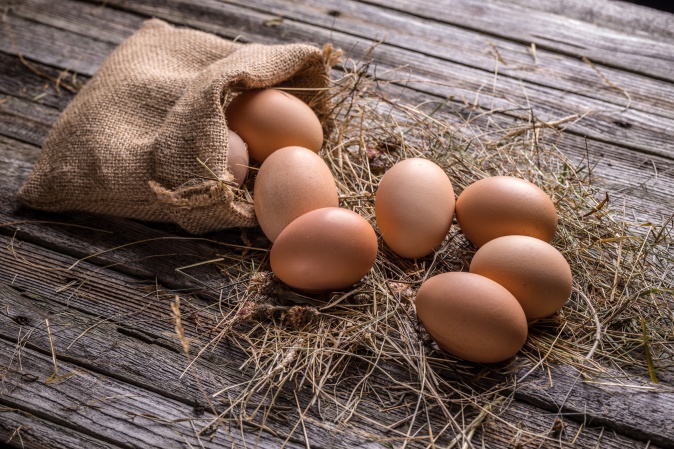
Pasture-raised eggs
Eggs, one of my most favorite foods, are a brain-boosting powerhouse. They are an excellent source of protein, with about 7 grams of protein per egg. They are also one of the best sources of dietary choline, a nutrient required for the production of acetylcholine. Acetylcholine is a neurotransmitter associated with memory storage and carrying messages along neuronal paths.
Eggs are also high in b-vitamins, including vitamin B12. Vitamin B12 plays a key role in neurotransmitter synthesis. Along with sardines, eggs are one of the few dietary sources of vitamin D. You can also find the powerful antioxidant, selenium, in eggs. See what I mean? So many happy nutrients!
EAT THIS: Pasture-raised eggs are your best choice. Confused about egg labeling? Here’s a great resource on how to shop for eggs.

Chocolate
Chocolate is loaded with anti-oxidant polyphenols, flavonoids being the most abundant. A study on chocolate’s effect on mood showed it increased calmness and feelings of content.[8] It also shows promise for helping improve your emotions when you’re in a bad mood.[9] Cacao may also directly affect the serotonin balance of the gut, leading to an increase in overall serotonin levels (about 95% of your body’s serotonin is found in the gut!).[10]
Some other promising research shows that eating high-quality chocolate can also interact with your mood by its ability to prevent activity increases of the enzyme indoleamine 2,3-dioxygenase. Don’t worry, I won’t make you say that out loud. Let’s just call it IDO. Increases in IDO may deplete L-tryptophan.[11] Since tryptophan is a precursor to serotonin, elevated levels of IDO may also reduce levels of serotonin.[12] This is an interesting concept, and could very likely work to boost your mood, although the direct effects of chocolate on your mood, via this pathway, have not been directly demonstrated. Looking forward to future research on this subject.
EAT THIS: 85% or higher dark chocolate or raw cacao powder. Look for fair trade options.
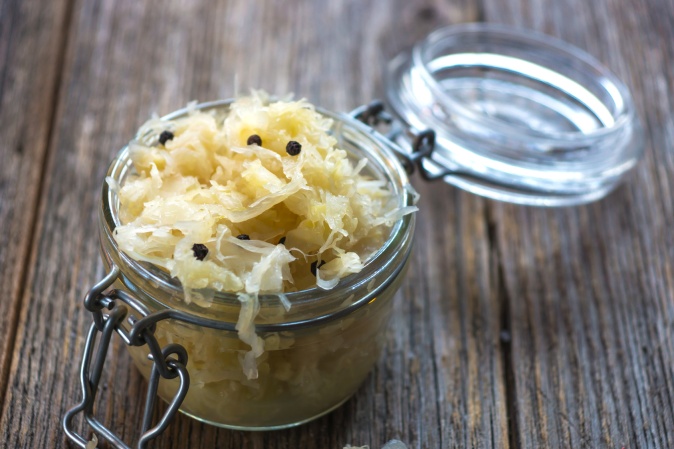
Fermented foods
Probiotics are beneficial bacteria that can provide all kinds of health benefits. More than 95% of your serotonin is produced in the gut. Studies suggest that increasing your intake of probiotic-rich foods can have a positive impact on your mood.[13]
EAT THIS: Kimchi, sauerkraut, kefir, beet kvass, and yogurt (look for grass-fed cow’s milk or goat’s milk yogurt. Best if it’s low-sugar and full-fat.)

Joy.
Sunshine
I know, I know. Sunshine is not a food. Although I wish it was, because I would eat a whole heap ton of it every day.
You can get vitamin D from some foods, but not many. Cod liver oil is probably the best dietary source of vitamin D. You can take them as capsules or eat the actual cod livers in their whole form. It may sound intimidating, but Daniel Vitalis has an interesting post on harvesting and preparing cod livers. Organ meats, egg yolks and mushrooms also contain vitamin D. Sardines have a small amount. But the best source of vitamin D comes straight from the sun.
Sunshine isn’t just a great way to get vitamin D. Spending time in the sun has an anti-inflammatory effect and produces endogenous endorphins.[14] Light exposure can also activate your body’s production of serotonin.[15, 16] Try spending 20-30 minutes in the morning sun every day, with arms and legs exposed.
EAT THIS: Well, there’s no bottled-sunshine just yet. So go play outside. Better yet, play in the dirt, in the sunshine for both probiotics and vitamin D!
Missed Part 1? How to Boost Your Mood: The Best Nutrients and Foods (Part 1)
Pin and save for later:
References:
- http://www.ncbi.nlm.nih.gov/pmc/articles/PMC2929771/
- http://www.ncbi.nlm.nih.gov/pubmed/19882093
- http://www.ncbi.nlm.nih.gov/pmc/articles/PMC3535097/
- http://www.ncbi.nlm.nih.gov/pubmed/22127270
- http://www.ncbi.nlm.nih.gov/pmc/articles/PMC3355196/
- http://www.ncbi.nlm.nih.gov/pubmed/22127270
- http://www.ncbi.nlm.nih.gov/pubmed/16891999
- http://www.ncbi.nlm.nih.gov/pubmed/8153237
- http://www.ncbi.nlm.nih.gov/pubmed/23364814
- http://www.ncbi.nlm.nih.gov/pubmed/24117885
- http://www.ncbi.nlm.nih.gov/pubmed/19330924
- http://www.ncbi.nlm.nih.gov/pubmed/12401473
- http://www.ncbi.nlm.nih.gov/pubmed/12401473
- http://www.apa.org/monitor/2012/09/gut-feeling.aspx
- http://www.ncbi.nlm.nih.gov/pmc/articles/PMC2290997/
- http://www.ncbi.nlm.nih.gov/pubmed/2786220/
- http://www.ncbi.nlm.nih.gov/pmc/articles/PMC3779905/
Medical Advice Notice: The information presented on this website is not intended as specific
medical advice and is not a substitute for professional medical treatment or diagnosis.
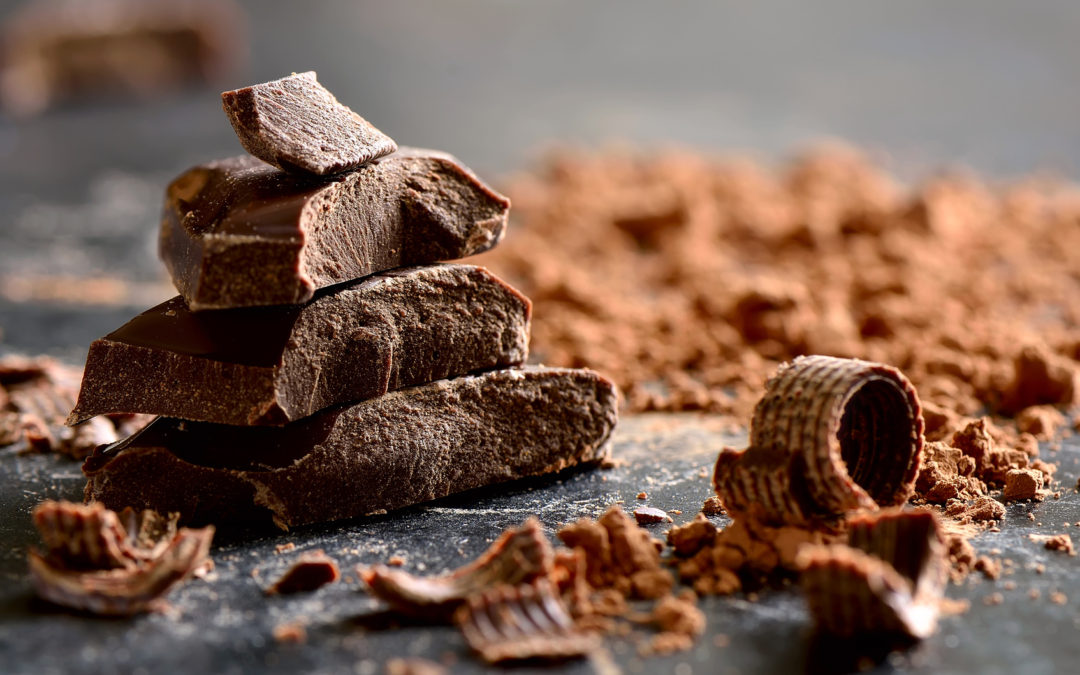

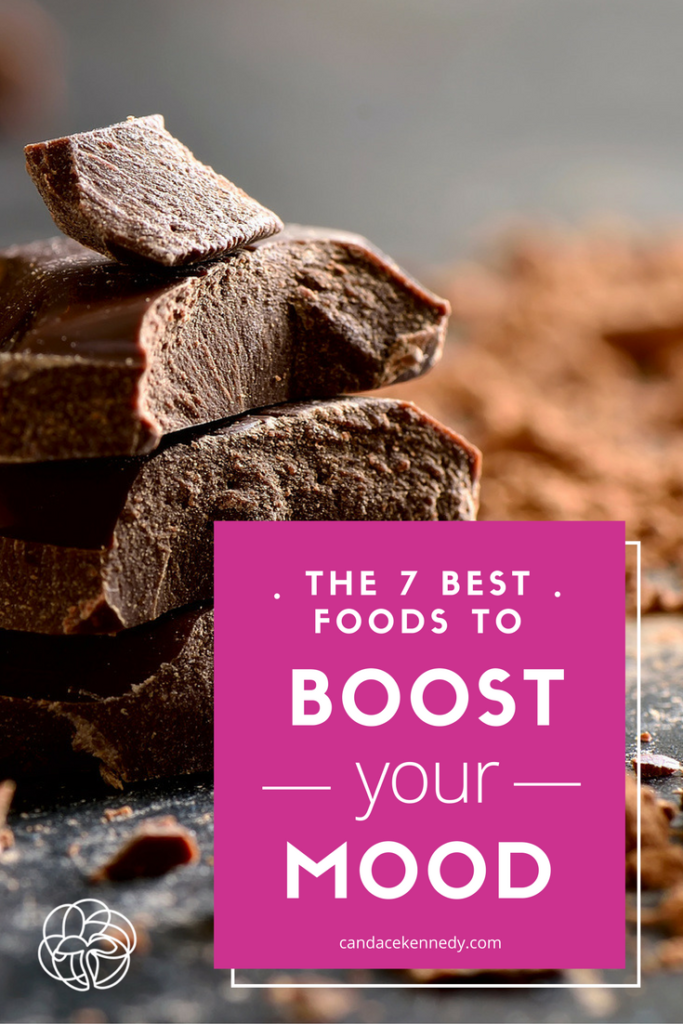
I love everything on this list except fermented foods. I just can’t. 🙁
Now, to just be more disciplined about eating healthy. Gotta turn this ship around!
Thanks for the great post!
I know! Fermented foods can be tough, especially if you didn’t grow up eating them. It’s difficult to develop a taste for them later in life. Do you like pickles? Those count. I think of them as the gateway food to other ferments. Kefir is also an easier one to start with since you can hide it in a delicious-tasting smoothie.
I DESPISE pickles. They are the worst.
Hahaha! I promise I won’t make you eat them then!
Such a great post! I also loved part 1 and all the scientific info you provided!
Thanks, Rachel! So happy you enjoyed the article!